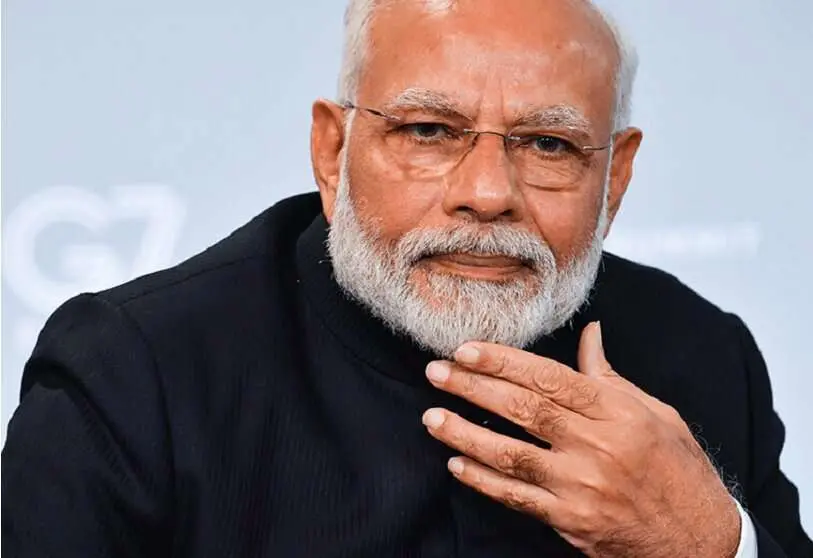India: Peasant uprising against the government

For several months now, millions of peasants have been besieging New Delhi and cutting off its communication routes with the rest of the country. It is not just any protest. They have come from all over the country, mainly from Punjab, Haryana and Uttar Pradesh, with food supplies to hold out for up to six months, in order to put pressure on Narendra Modi's government and force it to repeal in full the three agrarian laws that have triggered their uprising. The world's largest democracy is thus witnessing one of the most decisive struggles in the shaping of the country's future.
No less than 55% of India's workers, or some 600 million of the more than one billion adults who make up the country's labour market, make their living from agriculture, even though it accounts for barely 17% of the country's GDP. All of them, moreover, have become accustomed to the way of life brought about by India's so-called Green Revolution, which began in the 1970s and transformed an India that was totally deficient and dependent on international charity in terms of food, into a net exporter of rice and wheat, although it has only managed to lift rural areas out of poverty to a limited extent.
The aim of this operation was to multiply the productivity of the fields by using industrial seeds and powerful chemical fertilisers, as well as, of course, mechanising agricultural work to the maximum. The modernisation experiment meant abandoning traditional basic subsistence farming, but at the cost of the small peasants - the vast majority - going into debt for practically the rest of their lives with the loans needed to buy the advanced means of production. To encourage them, the federal government promised them an annual minimum support price (MSP), while guaranteeing the purchase of their entire crop by forcing them to sell it to their local Agricultural Produce Market Committee (APMC). With these mechanisms, the Indian state set up a programme to supply subsidised food to the poor, who still make up two-thirds of the country's 1.3 billion people.
This is what the three new laws passed by Narendra Modi, backed by the absolute majority of his Bharatiya Janata Party (BJP), which the prime minister calls a "gift" to the peasantry, call into question in the eyes of the peasants, but which the farmers consider to be legislation dictated exclusively for the benefit of the big food corporations, and in particular some of Modi's billionaire friends, among whom the angry farmers highlight Mukesh Ambani, the biggest fortune in Asia, and Gautam Adani, the second richest man in India.
The Delhi government says the new provisions are aimed not only at modernising production processes and giving farmers greater freedom of choice, but also at adapting to a globalisation to which it will be useless and even counterproductive to put up dykes or walls of containment.
The first of the new laws repeals the 1955 Essential Commodities Act, which stabilised food prices by preventing traders from hoarding supplies. Ostensibly, this allows smallholders to accumulate as much production as they want and can, and to operate in the markets according to the laws of supply and demand. However, small rural landowners feel that, in the first place, this forces them to go into debt with new investments for the purchase of land and the construction and maintenance of warehouses. Moreover, this does not guarantee that they will continue to receive subsidies even in years of poor harvests.
The second law also abolishes the MSP, the minimum price they were guaranteed for their production. Theoretically, this allows them to negotiate directly with potential buyers without the government intervening or arbitrating. Farmers believe that, in the event of abundant harvests and a consequent fall in prices, the large corporations will be able to destroy them easily.
Finally, the third law copies the American system of so-called contract farming, which allows corporate buyers to contract directly with small farmers for the production of specific crops. The text, a true reflection of the free market, is flawed in this Indian law in that it does not protect the small farmer in the event that the large corporation reneges on the contract on the grounds of "force majeure".
The tension between the government and the peasants is growing more heated with each passing day. Tensions have already been running high on several days, with hundreds of thousands of those camped out trying to storm the Red Fort, New Delhi's main monument and where the country's flag was first hoisted when it gained independence. The farmers' unions, which have around 250 million members, have warned Narendra Modi that they will only accept the outright abolition of the three laws, and have called on all the farmers of the vast Hindustani country to converge in successive marches on the capital.
The unions themselves point out that this upheaval in the Indian countryside will have an impact on the rest of the world. They argue that 35% of the spices consumed in the world come from Indian farms. This will also have an impact on other Indian agricultural exports such as rice, milk and cotton.

